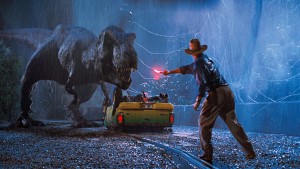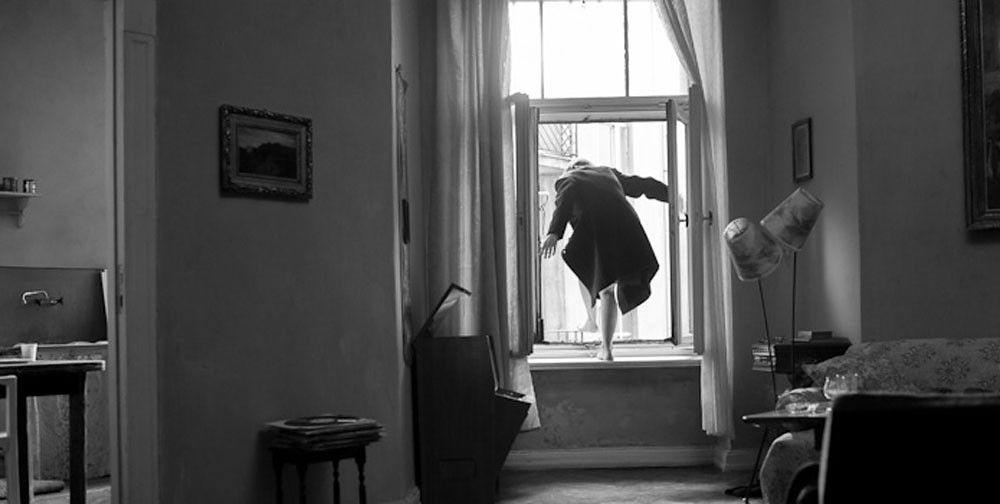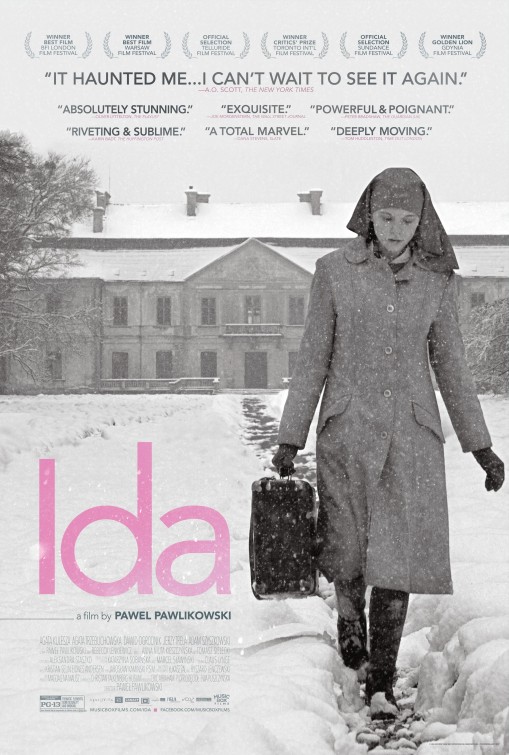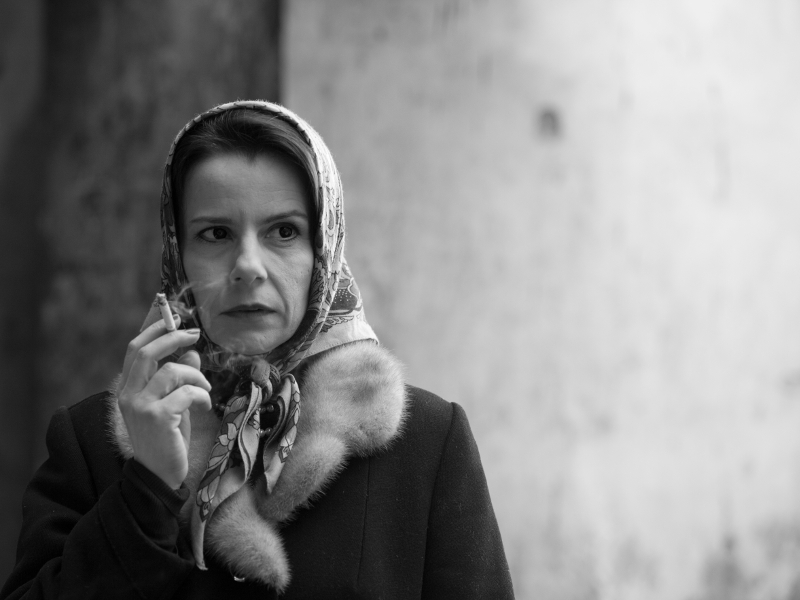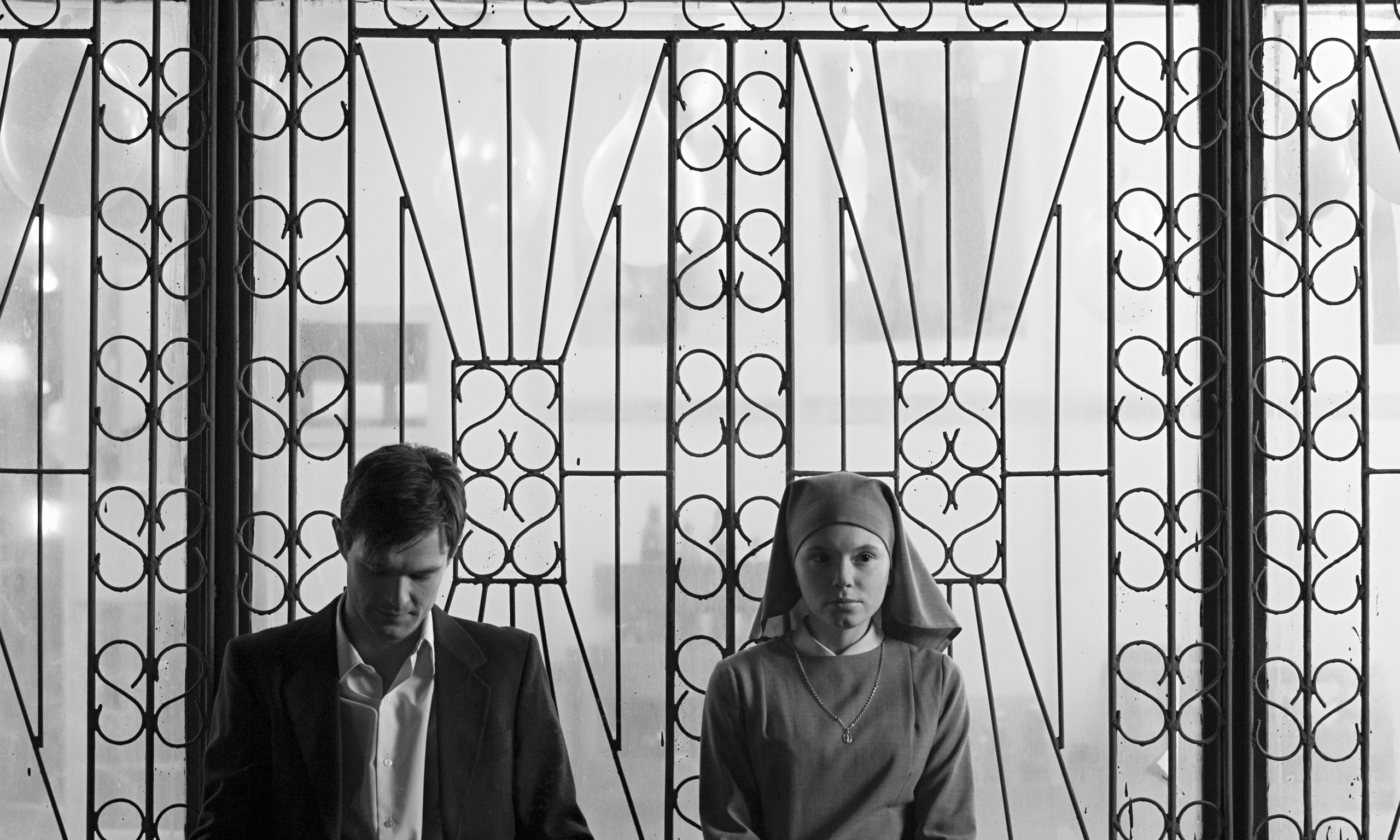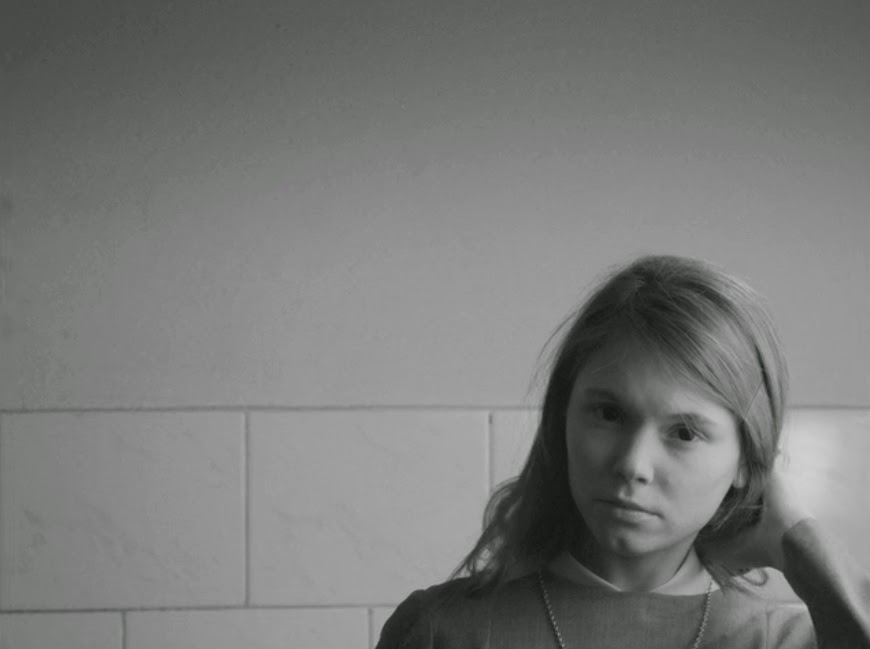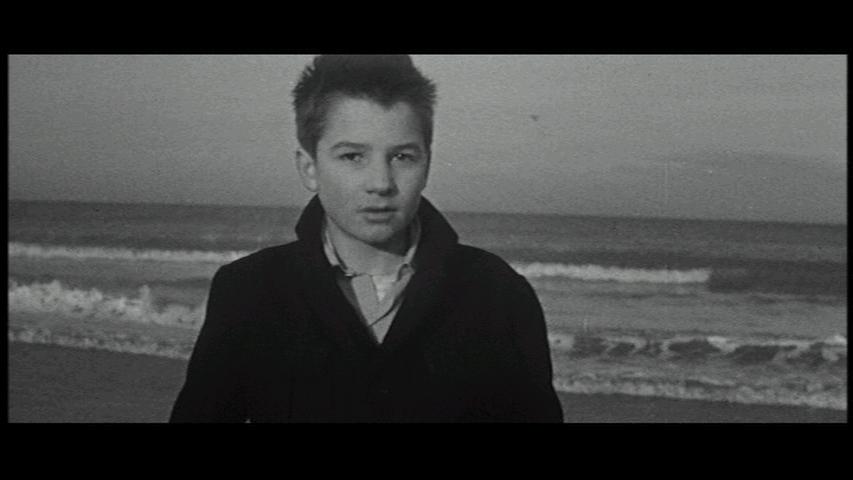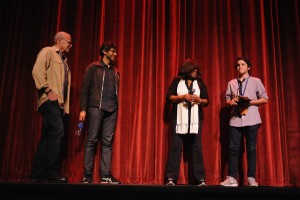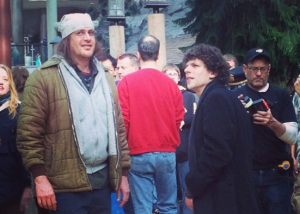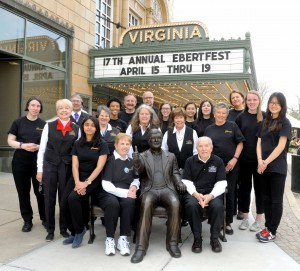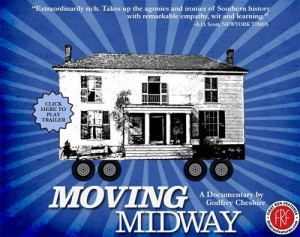I attended one of the discussion panels that the 2015 Ebertfest offered, but with the new Jurassic Park movie coming out this summer, and knowing that Roger Ebert had a review on it; I couldn’t pass up the opportunity to analysis the film and the review for myself, with all the new intelligence gained about productions from MACS 395.
Don’t get me wrong, Roger is of course a great writer filled with respectable opinions on film, but most of this analysis will consist of me rebutting a few of Roger’s points, because this was, and still, is one of favorite films growing up. Roger gave this film a 3 out of 4 stars, and though this is a relatively high rating from Roger, I strongly believe one more star to represent perfection was deserved.
Roger wanted more than just being able to see dinosaurs and suspense, he said as wanted to see more and feel more of that “sense of grandeur to them”, like when they view the dinosaurs for the first time.
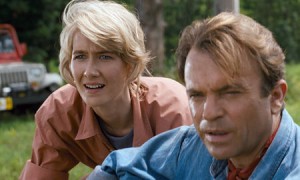 Personally, this is one of my favorite scene, but after this scene, as a viewer, all I wanted was to see more dinosaurs. I was already in awe, and believed anymore moments like this would’ve been too much, though there is another one of these “grandeur than them” moments.
Personally, this is one of my favorite scene, but after this scene, as a viewer, all I wanted was to see more dinosaurs. I was already in awe, and believed anymore moments like this would’ve been too much, though there is another one of these “grandeur than them” moments.
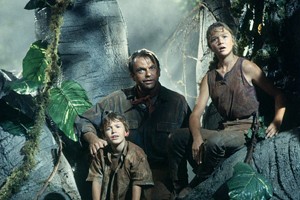 So Roger not only got one, but two of these moments. For me, a third one would have been too much. So Steven Spielberg was in the right to only emphasis a few of these moments.
So Roger not only got one, but two of these moments. For me, a third one would have been too much. So Steven Spielberg was in the right to only emphasis a few of these moments.
Roger also criticized Spielberg’s decision to introduce the T-Rex early on in the film, compared to his decisions in his film like Jaw’s, where he waited an hour into the film to introduce the monster. Of course, I have to disagree with Roger yet again, this film is already filled with so much suspense and anticipation that the viewer would not find it entertaining to wait for the monster to appear for an hour, but yet would find annoying the wait annoying instead. Also, the viewer would’ve been lost, and not know how truly scary the T-Rex is if not shown for at least a little but. For me, showing the T-Rex early on made me understand their fear throughout the movie, and helped me relate as a viewer. Again, aside from Roger’s views, revealing the monster of the film early on was a superb move from Spielberg.
“You want dinosaurs you get dinosaurs.”, says Roger in regards to this film, but not on such a delighted note. On the other hand, I was delighted that I got to see dinos I wanted to see. This film is after all called, Jurassic Park, for a reason.
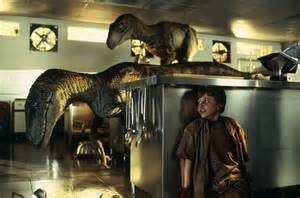 He thinks that more character development should have occurred, and that the storyline could’ve gone further into the human experience, but Spielberg knew this movie was not about that. He gave the people what they wanted, and they responded in the way he wanted with excitement and most of all, profit. Spielberg today is a big name for a reason, he knows what he is doing
He thinks that more character development should have occurred, and that the storyline could’ve gone further into the human experience, but Spielberg knew this movie was not about that. He gave the people what they wanted, and they responded in the way he wanted with excitement and most of all, profit. Spielberg today is a big name for a reason, he knows what he is doing 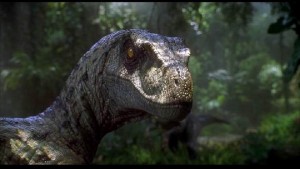 when it comes to structuring films. Even though he didn’t go the route Roger would have desired the most, the route he did take allowed him to get the scare factor that he wanted. The scare factor that people, today, still get scared with, and continue to talk about 22 years later.
when it comes to structuring films. Even though he didn’t go the route Roger would have desired the most, the route he did take allowed him to get the scare factor that he wanted. The scare factor that people, today, still get scared with, and continue to talk about 22 years later.


